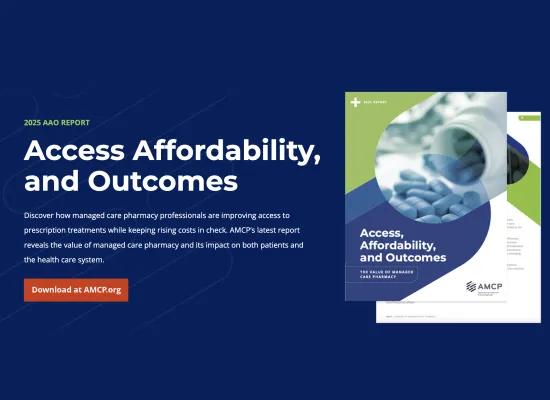
JMCP Research Focus: Comprehensive Hepatitis C Virus Medication Management Program Generates 10:1 ROI in State Medicaid Program
Alexandria, Va, October 13, 2016 — A comprehensive medication management program designed to optimize therapy and boost adherence to hepatitis C virus (HCV) medications saved a state Medicaid program nearly $3.8 million in avoided costs, according to a new study in the Journal of Managed Care & Specialty Pharmacy (JMCP).
The initiative administered under the Massachusetts Medicaid program generated a return-on-investment (ROI) of more than $10 for every $1 spent, according to the article in this month’s JMCP, the official journal of the Academy of Managed Care Pharmacy.
“Comprehensive HCV medication management…can help contain costs while ensuring that members have access to clinically optimized regimens,” the study authors said. “When designing a medication management program, it is important to be dynamic and up to date, and to address adherence.”
The program consisted of a two-tiered prescriber outreach: (1) outreach to promote optimized regimen selection and (2) outreach to support medication adherence through refill reminders. Prior authorization criteria were developed to identify optimized regimens, taking into account member- and virus-specific factors as well as cost.
“Successful regimen outreach” was defined as the number of members for whom a recommendation was accepted. Cost avoidance was calculated for members who completed treatment with an optimized regimen. ROI was based on a cost-avoidance model that balanced the start-up and maintenance costs of the program with cost avoidance realized from regimen switches.
Pharmacist interventions to treat with an optimized regimen were accepted for more than 60 percent of members in the program.
Treating HCV is expected to cost payers $136 billion over the next five years, of which $61 billion will be paid by the government, the study notes. Beyond cost considerations, nonadherence is a known issue for patients treated with HCV regimens because of regimen complexity, pill burden, toxicity, and drug interactions. All oral regimens promise improvements because of more favorable side effect profiles and greater patient acceptance of oral over injectable dosage forms.
The HCV medication management program was developed by the University of Massachusetts Medical School’s Clinical Pharmacy Services along with the Massachusetts Medicaid (MassHealth) program for fee-for-service and primary care clinician plans.
Study authors are: Pavel Lavitas, PharmD, BCPS; Mark Tesell, PharmD, BCPS; Tasmina Hydery, PharmD, MBA, CGP; Bonnie C. Greenwood, PharmD, BCPS; Mylissa Price, RPh, MPH; Kimberly Lenz, PharmD; and Paul Jeffrey, PharmD.
Read the study at http://bit.ly/2dIJEcg.
About JMCP
The Journal of Managed Care & Specialty Pharmacy publishes peer-reviewed original research manuscripts, subject reviews, and other content intended to advance the use of the scientific method, including the interpretation of research findings in managed care pharmacy. It is dedicated to improving the quality of patient care by providing its readers with the results of scientific investigation and evaluation of clinical, health, service, and economic outcomes of pharmacy services and pharmaceutical interventions, including formulary management. www.jmcp.org.
Featured News & Resources
See Full CalendarAward Applications Open
AMCP eLearning Day: Nexus Encore
AMCP 2026 Registration Opens
Upcoming Events
AMCP offers a wide variety of educational opportunities, from events and webinars to online training.







